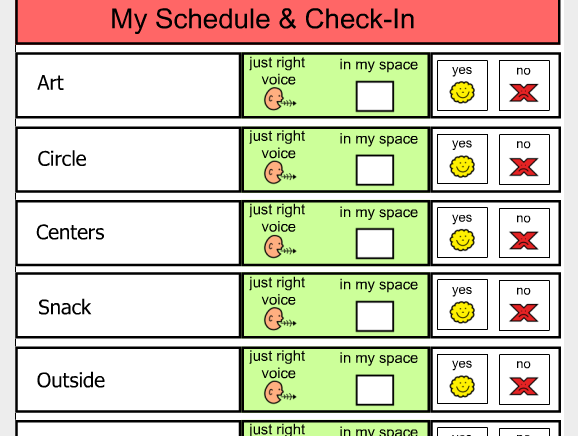Self-management is a strategy to increase independence and teach new skills and behaviors through monitoring, recording, and rewarding one’s own behavior. With self-management, the individual monitors his own behavior, rather than someone else doing it. Self-management can be used to address questions, such as:
Am I on-task?
Am I using an appropriate noise level?
Am I staying in my seat (during instruction, mealtime, etc.)?
Self-management helps children and adults with self-regulation, and through self-management, people learn rules and norms for acting appropriately in different situations. Included in self-management strategies are self-monitoring and self-reflection.
With anyone, increasing independence through self-monitoring is a plus! Self-management also can transfer or generalize to other behaviors and skills across environments and settings, including school, home, and the community.
There is strong research for self-management, and the National Professional Development Center (NPDC) on Autism Spectrum Disorders at the University of North Carolina (UNC) names self-management as an evidence-based practice. Self-management, according to the evidence-based practices report by UNC, can be used effectively to address social, behavior, play, communication, vocational, school-readiness, and academic skills and outcomes.
Ability ABA frequently incorporates self-management and self-monitoring into practice, as we work on increasing independence and decreasing supervision. Contact us to help you with creating meaningful self-management strategies to build strengths and skills in the home, community, and school!
Ability ABA
Building strengths and skills
info@abilityaba.com


